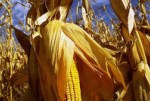Research
Last updated March 18, 2022

Agronomy is the science of land management. Agronomists generate, integrate and apply science-based knowledge and principles to crops grown for food, feed, fiber, and fuel that are efficient, environmentally sound, and sustainable for future generations.
The mission of the Corn Agronomy research program is to answer corn management questions expressed
by Wisconsin farmers and industry. Although farmers are the primary clientele, the general public
ultimately benefits and pays for this program. Therefore, we consciously evaluate
impacts of this program on society and keep the public aware of how we spend their
money.
Specific objectives of this project focus on management decision-making regarding
crop productivity, quality, and production efficiency including hybrid selection,
rotation, tillage systems, and replant and yield loss damage assessments. Emphasis
is on impacts of cropping practices on grower profitability, the environment, and
natural resource conservation.
General Program Areas:
Cultural practices integrated with changing technology (i.e. plant population, planting
date, row spacing with hybrids, tillage, pest control, etc.)
Growth and development interactions with management and environment
Reactive observations and issues (primarily environmental stresses, "Opportunistic"
research i.e. frost, drought, hail)
Map of research sites

Soils information
Measurements
Annual "Gold Book" Report on Cultural Practices and Management
Systems for Corn
2022 |
2021 |
2020 |
2019 | 2018 |
Growing Season Weather Summaries (April 1 to October 31)
Arlington:
2022 |
2021 |
2020 |
2019 | 2018 |
(Years earlier than 1992 do not have 30-yr normals. Weather data was
collected at Arlington beginning in July of 1962)
Hancock:
2018 |
Marshfield:
2022 |
2021 |
2020 |
2019 | 2018 |
Note: Annual weather summaries can be found in the annual Gold Book reports above.
These reports are copyrighted. The information presented in these reports are for the purpose of informing cooperators in industry of the results of research. The cooperation of other faculty and staff and the support of funding agencies and industry are gratefully acknowledged. The information presented in this report does not constitute recommendation or endorsement. This information is NOT FOR PUBLICATION unless prior approval is received.
Research Projects